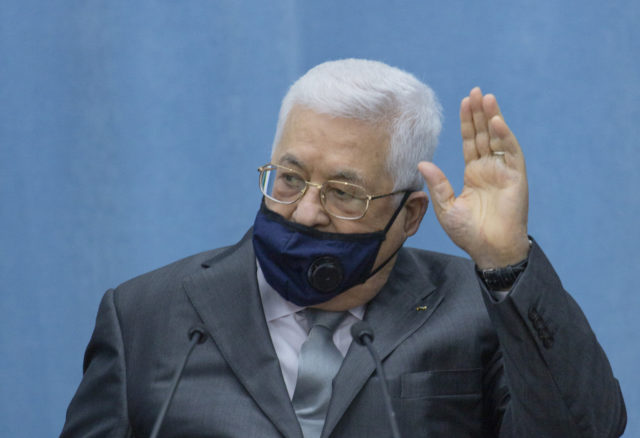Secretary of State Antony Blinken, with regard to elections in South America, tweeted earlier this month: “I recall @POTUS saying: ‘Democracy is fragile. That it must always be defended. That we must be ever vigilant.’ Elections are the first step. We must respect results and hold leaders accountable to sustain our democracies.”
President Joe Biden is right: Democracy IS fragile. Secretary Blinken, on the other hand, is wrong.
Elections are not the “first step” in building a democracy. And where elections are fraudulent, coercive or outright anti-democratic, the United States has no general obligation to simply “respect the results.” Consider the current Middle East electoral calendar.
Syria’s dictator, Bashar al-Assad, says he’s holding an election in May with five candidates—including himself—running for president. Candidates have to be approved by 35 members of a parliament dominated by Assad’s party. They have to have lived in Syria for the past 10 years—meaning no opposition figures in exile—and be married to a citizen. This follows 10 years of Assad’s war, in which more than half a million Syrian civilians have been killed, nearly 12 million others have been displaced internally and externally, and the government has been credibly accused of using chemical weapons on its own people.
Iran has elections in June. Candidates for president, as well as for the legislature and local councils, must be vetted by the Guardian Council, an appointed panel of Islamist jurists. Candidates cannot have a criminal record, thus effectively eliminating any Iranian who has been caught protesting the fanatical regime. All must pledge to adhere to Iran’s constitution and the “guardianship of the jurist”—meaning that ultimate authority lies in the hands of Islamic Republic’s supreme leader, Ayatollah Khamenei. Iranian state television announced in January that the Council disqualified more than 6,500 of 12,213 total possible candidates.
Democracy has certain fundamental elements, starting with regularity—the immutable principle that the current election is not the last, and that the next one will arrive on schedule. Regularity helps breed the essential principle of a “loyal opposition,” so that even if your party does not command a majority in the parliament or your candidate isn’t elected to the presidency, service in the opposition is an opportunity to make your case to the people for future elections. Which leads to the second non-negotiable democratic factor: freedom of speech and assembly without fear of government retribution.
Elections without freedom are nothing more than rigged, coercive referenda.
One way to avoid having to “respect the results” of an election is to cancel it. Which is precisely what the State Department is trying to do with the Palestinian Authority’s (PA) parliamentary and presidential elections scheduled for May and July, respectively. The PA skipping elections is certainly nothing new. PA President Mahmoud Abbas is in the 16th year of his four-year term, and the last legislative election produced a Hamas majority that was never seated. The result was a bloody Palestinian civil war.
This time, the Americans are concerned that new gains by Hamas could doom the vaunted “two-state solution.” A coalition government would force the U.S. to either deal with Hamas, which is on the formal terror list, or to cut off the PA. The Palestinian newspaper Al-Quds says there are growing calls to delay the May vote, and at least one report says that Israel and the U.S. requested that Abbas cancel it. Abbas is hedging, trying to figure out how to blame Israeli policy for whatever decision he ultimately makes.
It doesn’t matter. The election fails both tests of democratic governance. Last week, Facebook told Forbes:
As many as 800 individuals…were targeted by [PA] Preventive Security Service (PSS) malware. Though the agency is focused on internal security, it was found to be targeting those outside of the West Bank and Gaza. Victims included activists, dissidents, journalists and military groups, including the Syrian opposition and Iraqi military.
PSS admitted to Human Rights Watch that in 2016 and 2017, it had detained a total of 220 people because of social media posts. PSS claimed the detainees had been involved in “illegal activities,” including speech that “falls outside the bounds of criticism and expression of opinions.”
Palestinian activist Fadi Elsalameen has not been “detained,” perhaps because he is a dual citizen living in the U.S. at the moment. But he has been threatened by Abbas’ al-Aqsa Martyrs’ Brigade. And a Fatah official, who spoke on condition of anonymity, said Elsalameen “has made many fabricated claims on his [Facebook] page, which have been very damaging to lots of people.”
Elsalameen says Facebook—playing both sides of the Palestinian game—at one point took down his page, which had nearly a million followers.
Free elections are something to treasure. Millions around the world have them, hope to have them or despair of having them. The State Department’s job should be to stand with a given people and not “respect the results” of rigged referenda by corrupt dictators. And platitudes that don’t stand up to serious analysis are beneath the secretary of state.






